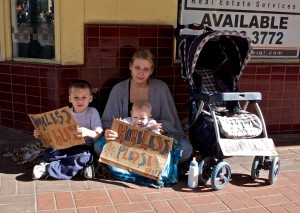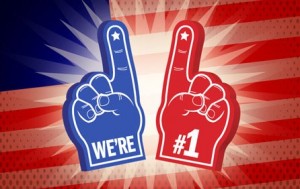 Kevin Bacon is so yesterday. If you’re an aspiring political pundit, Hitler is the game. Former governor and three-term senator from New Hampshire, Judd Gregg, is the latest to step into the ring.
Kevin Bacon is so yesterday. If you’re an aspiring political pundit, Hitler is the game. Former governor and three-term senator from New Hampshire, Judd Gregg, is the latest to step into the ring.
Writing in The Hill this morning, Gregg draws a wobbly late-night drunkard’s path from “Progressives” to “Wealth Redistribution”, makes a beeline to “Socialism”, a word that appears in the “National Socialism Movement” in Germany that was later shortened to “Nazism”, and by golly, there’s your “Hitler”. A perfect six hops, proving conclusively that Progressives are as bad as Hitler.
What more is there to say? I mean, you can’t argue with that sort of air-tight deductive power, can you? Surely, Sherlock Holmes himself (assuming he was smoking some seriously good shit in that bad-ass pipe of his) would concur.
I’m arguably a bit manic about this at the moment because it’s the second “slippery slope” argument I’ve seen in the last 48 hours. The other was John Goodman’s essay defending inequality. In Goodman’s case, he had the good sense to avoid Hitler, but he did manage to wend his way from a rise in the capital gains tax rate to 28% all the way to full on communism.
Fer cryin’ in yer beer, do these guys apply this sort of convoluted logic to their everyday lives? Do they really think if they don’t get rid of cable their house will explode?
The crime is that there should be a serious debate here. There are solid arguments for and against various plans to modify the tax code. There are pros and cons to changing the minimum wage. And there are pluses and minuses to socializing various functions and services in society. Further, these are complex interwoven policies. You can’t address them in a vacuum. Rather they need to be considered holistically with other policies to further specific goals.
But silly arguments like these do not advance the discourse. Life is lived in the grey, not at the extremes. If you want to model your world using ideological purity rather than data and reason; if you want your emotions to swell at the sound of soaring rhetoric and nationalist pride; if you want to rationalize the “other” as the root of your plight; then maybe you should be following… HITLER. {FTW}




